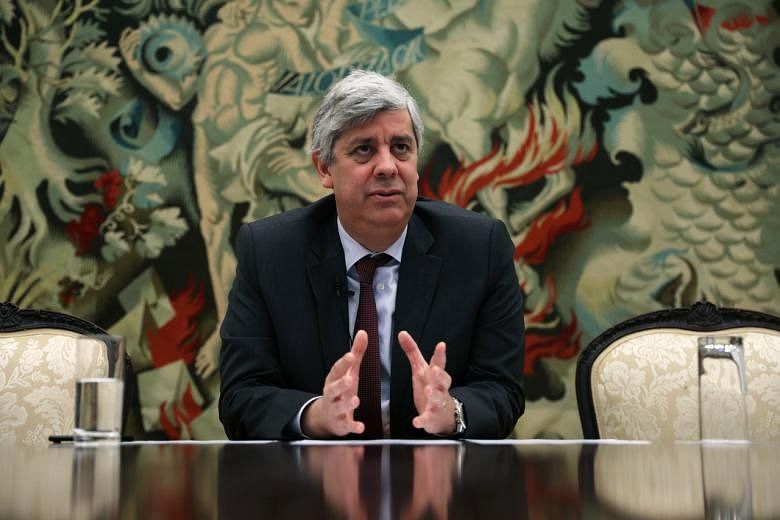European Union governments are rushing through measures designed to shore up their econo-mies as the continent struggles to deal with the effects of the coronavirus pandemic.
"We will protect our citizens come what may," vowed Portuguese Finance Minister Mario Centeno after chairing a teleconference of EU finance chiefs on Monday.
But the reinstatement of border controls throughout Europe makes the job of coordination much more difficult. And although a consensus is emerging on the continent that governments must use all their financial firepower to overcome the coronavirus crisis, there is no agreement on how these efforts should be implemented or how sustainable they ultimately are.
EU finance ministers had to take centre stage this week, largely because the European Central Bank (ECB) bungled the presentation of its own policies.
Last week, the ECB was widely expected to cut interest rates to ease fears that the continent's economies would be starved of credit, leading to widespread bankruptcies and unemployment. The US Federal Reserve had just slashed American interest rates to zero.
However, the ECB not only refused to cut rates, but its president Christine Lagarde also made matters worse by denying she is responsible for lowering the differences between the costs each EU member state has to pay for borrowing money on the financial markets. She now accepts that this was a grievous error that sent the cost of borrowing in Italy sharply upwards, just as the nation is struggling to cope with the highest coronavirus infection rate and mortality numbers in Europe.
EU finance ministers therefore had to get together to express solidarity and Mr Centeno, promising to "do whatever it takes" to prop up European economies, deliberately repeated the words used by previous ECB boss Mario Draghi, who, back in 2012, ended a European financial crisis with the same pledge.
The measures agreed on to combat the effects of the coronavirus are massive. If fully implemented, they could be worth around 10 per cent of the EU's total gross domestic product. These include the immediate allocation of €8 billion (S$12.5 billion) of loan support to the EU's small businesses as well as a multibillion-euro "corona investment fund".
More significantly, ministers also agreed to allow EU governments to ignore the existing limits on national borrowing and budget deficits in order to deal with the pandemic.
But the snag remains that key European nations continue to apply different policies to the crisis, with different financial consequences.
These range from a ban on all non-essential travel in the EU as proposed by the European Commission to the more open policy practices in countries such as the Netherlands, which is following Britain in accepting that the epidemic cannot be averted and is hence focusing on just slowing down infection rates, an approach likely to have less of an impact on the economy.
The key unknown is how countries such as Italy, France or Spain, which are now in total lockdown, can sustain their current policies over a long period, and what price tag that would entail.
French President Emmanuel Macron, who has further tightened restrictions on freedom of movement, suspended economic reforms and delayed the second round of his country's local elections in the fight against the pandemic, claims his nation is "at war".
He has also made huge financial promises. He reaffirmed his commitment to unlimited state financial support for businesses and employees affected by the outbreak, including up to €300 billion of state guarantees for bank loans to firms, as well as postponing the requirement to pay utility bills. Taxis and hotels will be requisitioned and paid for by the state. "No business, whatever its size, will face risk of bankruptcy," he said in a promise that may well end up haunting him.
French Finance Minister Bruno Le Maire has said the government's measures to prop up the economy and help companies and their workers will cost tens of billions of euros.
As a result of the pandemic, the ECB recently cut its growth forecast for the euro zone to 0.8 per cent for this year and 1.3 per cent for next year, compared with 1.1 per cent and 1.4 per cent, respectively, in the previous forecast. But with most European economic life now on hold, ECB boss Lagarde admits this forecast is already "partly outdated".

